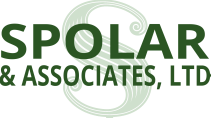As we head into the last few weeks of 2015, take some time to think about your activities in 2015 which could impact your taxes. If you had a life event in 2015 or a change in circumstances from 2014, there could be an impact on your 2015 taxes.
The outline below, while general in nature, has some key tax items to be aware of.
Contact me (or your regular local CPA) on questions related to your specific circumstances for the 2015 tax year.
Important!!! Watch out for Affordable Care Act (ACA) tax document!!!
Based on how you received your health care coverage in 2015, be on the look-out for the tax form noted below. You should receive the form by January 31, 2016. Keep the form with your other 2015 tax documents (W-2s, 1099s, etc.), as the form is needed to finalize your 2015 tax return.
The budget impasse and the upcoming election have kept the folks in D.C. busy. Numerous tax incentives expired in 2015 (a few key ones are listed below). If history is our guide, Congress will extend the incentives for 2015. It is hard to say when (or if) Congress may extend the incentives. The good news is the majority of Schedule A deductions and tax credits are intact for 2015. Keep receipts and records of expenses and costs for 2015 as normal, and keep your fingers crossed.
A few tax incentives which expired in 2015. Caution - not all are listed.
For 2015, the standard deduction amounts by taxpayer filer status are as follows: Single $6,300, Head of Household $9,250, and Married Filing Jointly $12,600. As a reminder, in order to itemize, and deduct an amount more than your standard deduction, proper substantiation is needed and kept with your tax return copy.
A reminder on a few major categories:
Medical and dental expenses that exceed 10% of adjusted gross income on Form 1040.(If you are over 65, the threshold is 7.50%.) Keep receipts of payments made to/for doctors, hospital care, prescription medicines, insurance premiums, as well as car mileage to medical care. In general, payments related to medical care or a medical condition, are deductible, keep receipts in order to determine if the deduction is allowed.
Real Estate taxes are deductible, both on the primary home and a second home (based on threshold amounts). Keep receipts for taxes paid during 2015.
Home mortgage interest and points are deductible (based on threshold amounts). Look out for tax document Form 1098, which reports interest paid during 2015.
Charitable donations to an IRS-recognized charitable organization are deductible. Proper support of the donation is important. Several items to keep in mind:
Unreimbursed work-related expenses, i.e. your employer did not reimburse you for, that exceed 2% of your adjusted gross income on Form 1040. Examples of job expenses include safety equipment, dues to professional organizations, training costs, and costs to look for a new job.
Mandatory reporting of foreign financial accounts, assets, and interests
Foreign-based transactions or interests may be subject to reporting independent of your Form 1040 annual filing. Foreign-based transactions/interests include:
Taxpayer-related identity theft continues to be a growing problem. The IRS will NEVER contact you via the phone to attempt to collect taxes. The IRS will NEVER email or text you with a link to click on to attempt to collect taxes. The IRS uses the U.S. Postal service to contact you for follow up on tax questions.
Any contact you get via the phone, email or text from a person identified with the IRS, hang up or do not reply.
Watch out for your 2015 tax organizer
Does your CPA send you out a tax organizer early in the year to help with the preparation of your tax return? Take the time to review and complete the document, as the items could jog your memory about an activity in 2015 that might impact your return.
Follow me on Twitter for tax updates
As I mentioned earlier, Congress may extend several tax incentives for 2015. Depending on when, this may impact the tax filing season. Follow me on Twitter, @SpolarCPA, and on my website, www.spolarandassociatesltd.com, for current updates on taxes and the tax filing season.
Diane M. Spolar is a CPA with the firm Spolar and Associates, Ltd. Diane's background includes 10 years with the CPA firm Arthur Andersen, as well as Director of Finance level positions with national not-for-profit organizations. Diane is a member of the Illinois CPA Society.
The outline below, while general in nature, has some key tax items to be aware of.
Contact me (or your regular local CPA) on questions related to your specific circumstances for the 2015 tax year.
Important!!! Watch out for Affordable Care Act (ACA) tax document!!!
Based on how you received your health care coverage in 2015, be on the look-out for the tax form noted below. You should receive the form by January 31, 2016. Keep the form with your other 2015 tax documents (W-2s, 1099s, etc.), as the form is needed to finalize your 2015 tax return.
- Healthcare coverage provided by your employer, look-out for Form 1095-C Employer Provided Health Insurance Offer and Coverage
- Healthcare coverage provided by an Insurance Company, look-out for Form 1095-B Health Coverage
- Healthcare coverage purchased from healthcare exchange/market place, look-out for Form 1095-A Health Insurance Marketplace Statement
The budget impasse and the upcoming election have kept the folks in D.C. busy. Numerous tax incentives expired in 2015 (a few key ones are listed below). If history is our guide, Congress will extend the incentives for 2015. It is hard to say when (or if) Congress may extend the incentives. The good news is the majority of Schedule A deductions and tax credits are intact for 2015. Keep receipts and records of expenses and costs for 2015 as normal, and keep your fingers crossed.
A few tax incentives which expired in 2015. Caution - not all are listed.
- Deduction of state and local sales tax in lieu of deduction for state and local income taxes (on Schedule A).
- Majority of the energy tax incentives, such as 10% credit for qualified nonbusiness energy property.
- Deduction of qualified tuition and related expenses (university, etc.) from income (phased out at income levels).
For 2015, the standard deduction amounts by taxpayer filer status are as follows: Single $6,300, Head of Household $9,250, and Married Filing Jointly $12,600. As a reminder, in order to itemize, and deduct an amount more than your standard deduction, proper substantiation is needed and kept with your tax return copy.
A reminder on a few major categories:
Medical and dental expenses that exceed 10% of adjusted gross income on Form 1040.(If you are over 65, the threshold is 7.50%.) Keep receipts of payments made to/for doctors, hospital care, prescription medicines, insurance premiums, as well as car mileage to medical care. In general, payments related to medical care or a medical condition, are deductible, keep receipts in order to determine if the deduction is allowed.
Real Estate taxes are deductible, both on the primary home and a second home (based on threshold amounts). Keep receipts for taxes paid during 2015.
Home mortgage interest and points are deductible (based on threshold amounts). Look out for tax document Form 1098, which reports interest paid during 2015.
Charitable donations to an IRS-recognized charitable organization are deductible. Proper support of the donation is important. Several items to keep in mind:
- If you received a benefit in return, such as a meal or merchandise, your donation is reduced by the value of the benefit.
- For donations of cash money, a bank record, cancelled check, or document from the charitable organization is needed to substantiate.
- For each separate monetary donation of $250 or more, a written letter from the charitable organization is needed that includes the organization's name, amount of contribution, contribution date, and the value of goods/services provided in return if applicable.
- For each separate noncash donation of $250 or more, a formal written letter from the charitable organization is needed that includes the organization’s name, details on the property, contribution date, and the value of goods/services provided in return if applicable.
Unreimbursed work-related expenses, i.e. your employer did not reimburse you for, that exceed 2% of your adjusted gross income on Form 1040. Examples of job expenses include safety equipment, dues to professional organizations, training costs, and costs to look for a new job.
Mandatory reporting of foreign financial accounts, assets, and interests
Foreign-based transactions or interests may be subject to reporting independent of your Form 1040 annual filing. Foreign-based transactions/interests include:
- Financial interest or signature authority over a foreign financial account that totals more than $10,000. The financial accounts are defined as a bank account, mutual fund account, trust account or other type of financial account.
- Foreign, non-financial account assets in excess of threshold amounts.
- Interests in a foreign corporation as a shareholder, director, or officer, based on applicable IRS-defined categories.
Taxpayer-related identity theft continues to be a growing problem. The IRS will NEVER contact you via the phone to attempt to collect taxes. The IRS will NEVER email or text you with a link to click on to attempt to collect taxes. The IRS uses the U.S. Postal service to contact you for follow up on tax questions.
Any contact you get via the phone, email or text from a person identified with the IRS, hang up or do not reply.
Watch out for your 2015 tax organizer
Does your CPA send you out a tax organizer early in the year to help with the preparation of your tax return? Take the time to review and complete the document, as the items could jog your memory about an activity in 2015 that might impact your return.
Follow me on Twitter for tax updates
As I mentioned earlier, Congress may extend several tax incentives for 2015. Depending on when, this may impact the tax filing season. Follow me on Twitter, @SpolarCPA, and on my website, www.spolarandassociatesltd.com, for current updates on taxes and the tax filing season.
Diane M. Spolar is a CPA with the firm Spolar and Associates, Ltd. Diane's background includes 10 years with the CPA firm Arthur Andersen, as well as Director of Finance level positions with national not-for-profit organizations. Diane is a member of the Illinois CPA Society.


 RSS Feed
RSS Feed